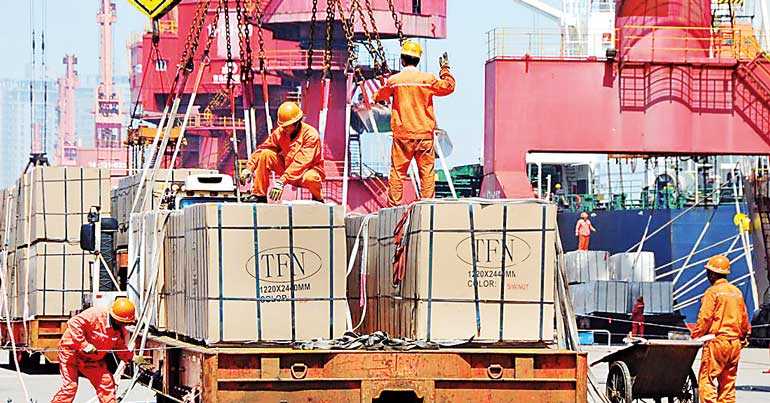Friday Feb 20, 2026
Friday Feb 20, 2026
Thursday, 13 June 2019 00:00 - - {{hitsCtrl.values.hits}}

Washington/Beijing (Reuters): US President Donald Trump on Tuesday defended the use of tariffs as part of his trade strategy while China vowed a tough response if the United States insists on escalating trade tensions amid ongoing negotiations.
The United States kicked off a tariff battle with China in 2018, seeking sweeping structural changes from Beijing. But tensions between Washington and Beijing rose sharply in May after the Trump administration accused China of reneging on promises to make structural economic changes during months of trade talks.
“Tariffs are a great negotiating tool,” Trump tweeted, one day after saying he was ready to impose another round of punitive tariffs on China.
On Monday, the Republican president said he would raise tariffs on Chinese imports further if he cannot make progress in trade talks with Chinese President Xi Jinping at the G20 summit later this month.
Trump has repeatedly said he is getting ready to meet Xi at the summit in Osaka, Japan, at the end of June, but China has not confirmed it.
Chinese Foreign Ministry spokesman Geng Shuang again would not be drawn into confirming a Xi-Trump meeting at G20, saying information would be released once it was available to the foreign ministry.
“China does not want to fight a trade war, but we are not afraid of fighting a trade war,” he said, adding China’s door was open to talks based on equality.
“If the United States only wants to escalate trade frictions, we will resolutely respond and fight to the end.”
Last week, Trump said he would decide after G20, the meeting of the leaders of the world’s largest economies, whether to carry out a threat to impose tariffs on an additional $300 billion in Chinese goods.
Trump is buoyed by his self-declared victory following a days-long battle with Mexico after he threatened to impose tariffs unless Mexican authorities did more to stem the migrant flow across the US-Mexico border.
The dual fights have pitted the Trump administration against its top two trading partners.
Washington is pressing Beijing to address concerns over forced technology transfers and theft of US trade secrets. It also wants curbs on subsidies for Chinese state-owned enterprises and better access for US firms to Chinese markets.
On May 10, Trump raised tariffs on $200 billion of Chinese goods to 25% and took steps to levy duties on the additional $300 billion in Chinese imports. Beijing retaliated with tariff hikes on a revised list of $60 billion in US goods.
‘Back to where we were’
US Commerce Secretary Wilbur Ross on Tuesday downplayed the likelihood of resolving the dispute at the G20 summit, saying it would not be “a place where anyone makes a definitive deal.”
“At the G20, at most it will be ... some sort of agreement on a path forward, but certainly it’s not going to be a definite agreement,” Ross told CNBC.
The White House’s top economic adviser Larry Kudlow echoed that sentiment in an interview with CNBC, saying he was hopeful the two presidents would meet at the G20 summit and be able to salvage the discussions.
The two sides were “about 90% home” on a “great deal” when the talks fell apart a month ago, Kudlow said.
“We’d like to go back to where we were a month ago, where we have a very good basis,” Kudlow said.Terry Branstad, the US ambassador to China, was scheduled to meet with US Vice President Mike Pence in Washington on Tuesday amid the ongoing negotiations.
The US government has also angered China by putting Huawei Technologies Co Ltd, the world’s biggest telecoms equipment maker, on a blacklist that effectively bans US companies from doing business with the Chinese firm.
Investors worry China will retaliate by putting US companies on a blacklist or banning exports to the United States of rare earth metals, which are used in products such as memory chips, rechargeable batteries and cellphones.